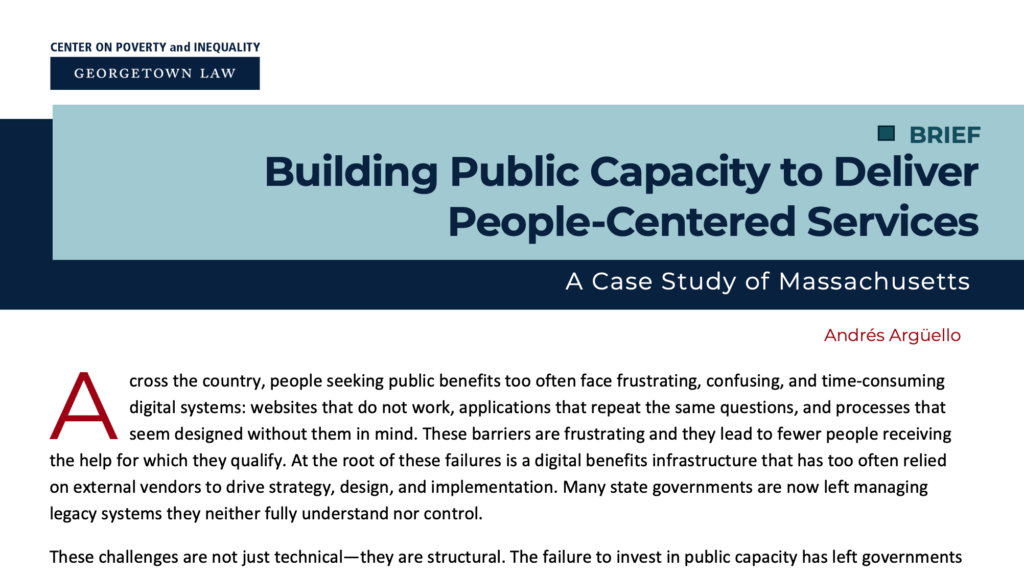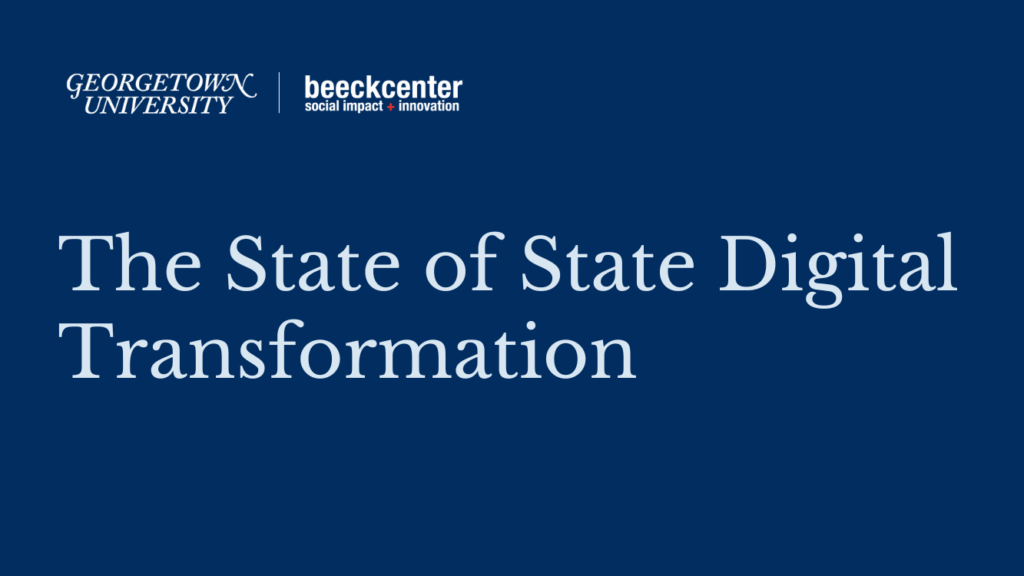Government Digital Service Team Tracker
The Beeck Center for Social Impact + Innovation’s Digital Service Network (DSN) maintains a Government Digital Service Team Tracker: a living database for those seeking to learn more about the locations, structures, mandates, and more of government digital service teams across the United States.
Tracking government digital service teams across the U.S.
When done well, digital government services can create more accessible pathways to resources, promote greater uptake of essential programs, and foster greater trust in government.
Government digital service teams (DSTs) help facilitate the digital transformation of essential government experiences, and their proliferation across U.S. governments over the last decade prompts a critical conversation about how these teams are funded and layered into existing organizational structures.
To better investigate the ever-increasing number of U.S.-based government DSTs and their varied structures, the Digital Service Network (DSN) maintains a Government Digital Service Team Tracker.
Defining DSTs
The DSN defines government DSTs as in-house teams of digital practitioners with:
- Expertise in, at minimum, user-centered research and design, agile product management, and data-driven decision making. Many DST practitioners also have experience in digital government policy, change management, cybersecurity, and/or cloud-based solutions.
- A mandate to create and improve, and/or help other government actors create and improve, public-facing online government experiences.
Though broadly similar in their missions and methodologies, DST structures and funding mechanisms can be as diverse as the needs of the constituents they serve. DSTs can be centralized, supporting government-wide priorities; decentralized, supporting agencies across a government as an internal “consultant” of sorts; or agency-specific, designed to serve the needs of the particular agency in which they are embedded. They might be fully-funded or operate on a cost-recovery model.
Scholarly research on DSTs suggests that governance structure and resourcing strongly influence the impact of these teams’ efforts. DST practitioners identify factors like partisan support, funding mechanisms, and policy mandates as determinants of their teams’ size, priorities, and longevit
Explore the DST Tracker
To better investigate the ever-increasing number of U.S.-based government DSTs and their varied structures, the DSN maintains a Digital Service Team tracker:
The tracker is a living database for those seeking to explore:
- Where and at what level of government current and disbanded DSTs are/were located across the U.S.
- How U.S.-based DSTs are enabled, structured, and funded
- Primary documentation and examples from U.S.-based DSTs
The DST Tracker includes:
Teams across the country
Validated data
Strategic documentation
-
36
DSTs in federal, state, and
local governments -
69%
of featured DSTs with information directly validated by team members
-
1/4
DSTs with complete
organizational and budgetary data
DST Tracker overview metrics last updated: November 2025.
Capture your team in the DST Tracker
Constituent needs and expectations are evolving to digital products and on-demand service delivery. Although decades of outsourced information technology services have undermined in-house government capabilities and public trust, DSTs are an alternative approach to reinvigorating both.
The DSN’s DST Tracker recognizes governments investing in the digital service team model to meet their digital delivery needs. Publishing otherwise internal information about DSTs in the tracker will reduce barriers for new and emerging teams by making various approaches to structuring and funding government DSTs more available and accessible.
If you would like to see your DST’s information captured and verified alongside others in the field, fill out the DST tracker intake form:
References
- Mergel, 2017. Digital Service Teams: Challenges and Recommendations for Government.
- Clarke, 2019. Digital government units: what are they, and what do they mean for digital era public management renewal?
The DST Tracker is the product of collaboration with the DSN’s Chief Digital Service Officer community of practice and a team of University of North Carolina (UNC) Master’s of Public Administration (MPA) students—Brianna Beadle, Keegan Huynh, Thomas Johnson, and Ian Wheeler. Learn more about the UNC MPA team’s work with the DSN on the Digital Government Hub.


